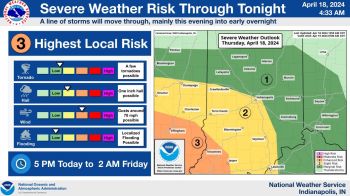STATEWIDE — The people who commit sex crimes against children are known by another term: predators. But what makes a predator?
“There’s no specific look to a person, there’s no age, there’s no gender, there’s nothing that is truly the hallmark of a child molester,” explains Emily Perry, founder and executive director of Susie’s Place Child Advocacy Centers.
Perry says literally anyone, from any walk of life can be a predator. It doesn’t matter if it’s a man, woman, teenager, Black, white, so on and so forth. What makes a predator is someone with overwhelming access to children, and someone who constantly pushes the boundaries of what’s acceptable behavior with a child.
“For example, is it appropriate for the parent of one of my children’s friends to have my child sit on their lap,” says Perry,” that’s not appropriate to me. If that person consistently crosses that boundary and pushes that boundary, that’s a huge red flag for me.”
Perry says what’s important for you to remember is that boundary is whatever you deem inappropriate behavior: it’s your child, and you make the rules.
Predator behavior can vary, from one extreme to another. Predators can be any trusted individual in a child’s life. When they’re around that child, they can act immature or overly affectionate. But when predators are finally confronted about their actions, they can be deadly.
“These particular offenders have a tendency to be very violent when presented with the loss of their freedom,” says Special Agent Andrew Willmann with FBI Indianapolis. Agent Willmann says child predators often take situations into their own hands. Just last year, Willmann says two FBI agents in Florida were killed when they attempted to approach a child predator.
Access is a predator’s greatest weapon, and one way predators gain access to a child is when that child feels they have no one to go to for emotional support. The most effective method of deterring child predators is being involved with your child – truly building a system of trust with them, so that they know they can always come to you.
RESOURCES
National Center for Missing and Exploited Children (NCMEC) – Cyber Tip Line is 1-800-843-5678
FBI’s Violent Crimes Against Children Task Force
Violent Crimes Against Children — FBI
Indiana State Police
ISP: Cybercrime & Investigative Technologies Section
NCMEC NetSmartz Information & Resources
Into The Cloud (missingkids.org)
FBI’s Child ID App – a tool for parents
Susie’s Place Child Advocacy Centers Information
Susie’s Place Child Advocacy Centers – Susie’s Place (susiesplace.org)
Information About Childhood Trauma & Recovery













